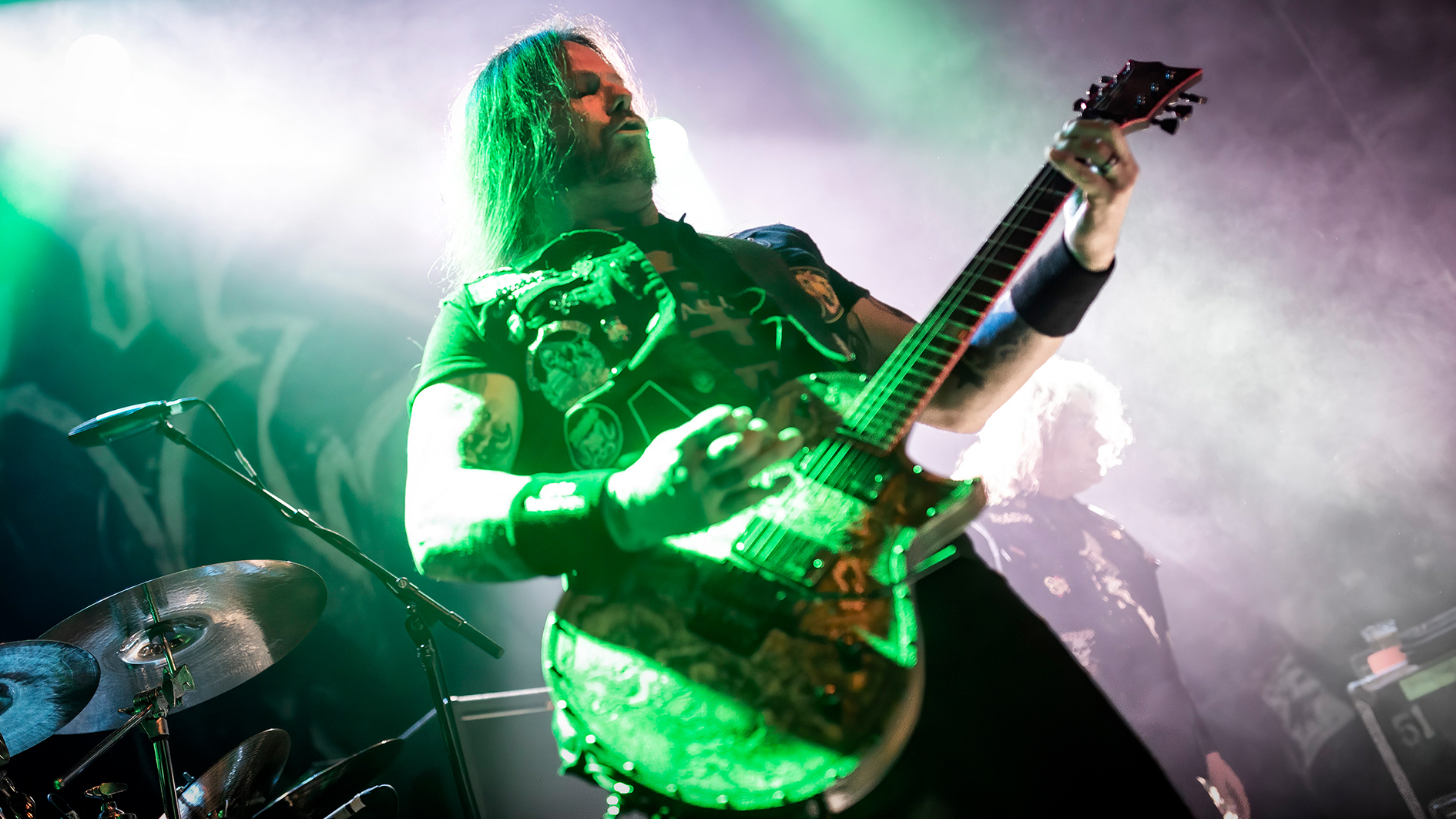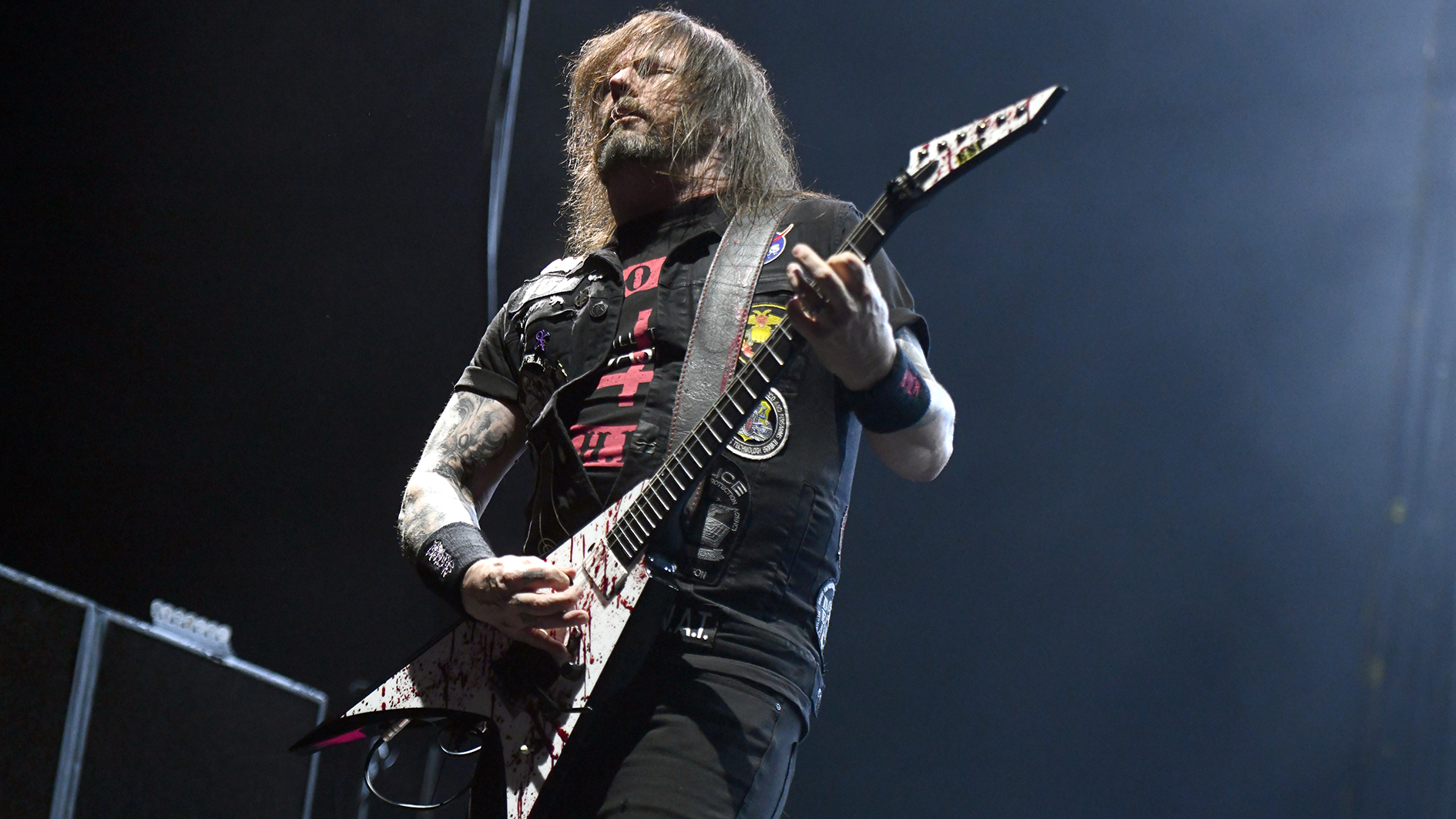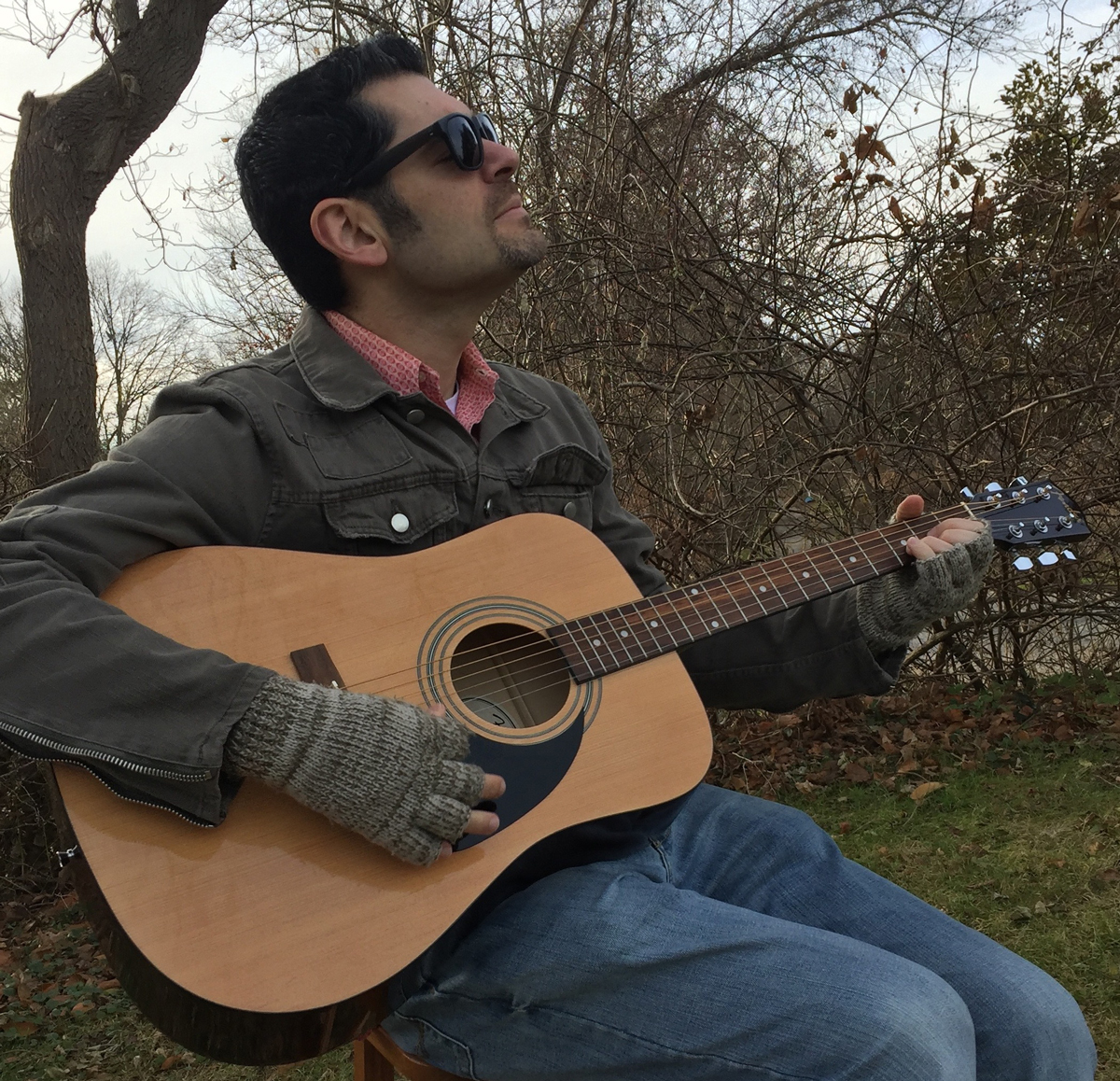Gary Holt: “Making this album, we were under no time constraints. It was a perfect breeding ground for creativity”
Holt talks why if there was a “Big Five” of thrash metal, the final spot would belong to Exodus, and the making of the band's 11th album, Persona Non Grata, during the pandemic

It’s been seven long years since thrash metal veterans Exodus (singer Steve “Zetro” Souza, guitarists Gary Holt and Lee Altus, bassist Jack Gibson, and drummer Tom Hunting) issued a new album.
But the delay was understandable – Holt lending a hand with Slayer on their highly successful The Final World Tour, Hunting battling squamous cell carcinoma, and of course, Covid halting most band’s plans.
But this month, Exodus will finally unleash their 11th studio album, Persona Non Grata. The long layoff has not dulled the California group’s knack for providing truly vicious metal – especially heard on the singles The Beatings Will Continue (Until Morale Improves) and Clickbait.
Holt spoke with Guitar World in the weeks before the arrival of Persona Non Grata.
Let’s start by discussing the new Exodus album, Persona Non Grata.
“The big difference on this album is we built a full-on recording studio up at Tom Hunting’s – up in the mountains. And I literally had the ability to mic up as many speakers as I wanted, and really go crazy – and really do it the way we did back in the glory days of spending a ton of money on recording studios. But we did it on our own, and it was super awesome to play with sound like that.”
Which songs are you most proud of from a guitar standpoint?
Get The Pick Newsletter
All the latest guitar news, interviews, lessons, reviews, deals and more, direct to your inbox!
“My favorite solo on the album is on The Fires of Division. That one came out really, really good. Some of them are not easy to play – the title track. That main riff is just completely weird, and it’s a ‘left wrist killer.’ It’s just one of those where the process of playing that riff is really hard on the left hand.”
When it comes to solos, do you like to work out something beforehand, or come up with it on the spot?
“I usually might have an idea of where I want to go, and then I just work on it from there – until I get it to where I’m happy, and get it worked out. On this album, we had the time to work as long as we wanted on anything – which was awesome. We were under no time constraints. It was a perfect breeding ground for creativity.”
What is your current guitar set-up?
“In terms of amplifiers, I use Marshall Jubilee reissues. It’s what I’ve been using for a long time – even through the farewell tours with Slayer, carried over to Exodus. On the album I use that, and on the front end of it, I ran a Boss Super Overdrive and my signature Pro Tone Mid Boost – which allowed me to tailor those mids just the way I want them, for maximum crunch.
I don’t know if there will be another genuine movement like thrash metal. The club scenes aren’t what they were
“And we actually got on eBay and bought some vintage BBE Sonic Maximizers. We went really old school – we used to use those in the late ‘80s to the early-mid ‘90s. It just added that little bit of thump on the bottom and it was totally killer.
“Guitar-wise, I used a couple of my different ESPs, and I used a 1983 Yamaha SBG-3000 on all the rhythms. That thing was just crushing – it was a super heavy, big, thick guitar.
“I used a gold pearl ESP – it’s one of my signatures, but it’s like a gold top, with a little pearlescent gold in it. I used a bolt-on Strat ESP that I have – it’s actually just an LTD, scalloped from the twelfth down. And I took my blood guitar – the one painted in my blood. Those were the primary ones – the ESPs and the Yamaha.
“Where we recorded, we were limited on what we had, because it was three hours from home and driving up in my Jeep. I couldn’t bring 20 guitars… so I brought like, five. I couldn’t bring every amp I’ve got, so I brought the ones I knew I wanted around.”

How would you compare your current set-up to your set-up back in the ‘80s, circa Bonded by Blood?
“Well, Bonded by Blood, that was a weird album there – because my Marshall crapped out, and I used John Marshall’s Hiwatt head with two Boss Super Overdrives on it, and both of them with the level on ten, and the drive on zero. And it just worked with that amp. It was kind of weird.
“But from there on through the ‘80s, I used Marshall [JCM]800s usually with a Super Overdrive, and then later, adding parametric EQ’s into it – which is what I used the mid boost for. I only use that mid band anyway, so now I have a pedal that is just a mid band.
“The same thing with my KHDK signature pedal – which is basically like a Tube Screamer and a mid band parametric all in one pedal, and it’s just amazing.”
And what were your main guitars back then?
“Mostly Jackson. In the early ‘80s, we would take three cheap Strats, take them apart, and build one good guitar out of them. We ‘Frankensteined’ stuff all the time. And I played some Ibanez.”
I just tell people, ‘I know where I was when thrash metal was born,’ and a lot of other bands that lay claim to the spot alongside The Big Four didn’t exist yet. So, that spot belongs to us – fuck everybody else!
Do you think there could ever be another movement as far-reaching as thrash metal was in the ‘80s?
“I don’t know. I guess in its own way, the nu metal wave took off, and there were a million bands that came out of it. And some rose to the top. So, I guess you’ve got to give them credit for having a movement of their own.
“But going forward, I don’t know. I don’t know if there will be another genuine movement like that. The club scenes aren’t what they were.”
Also back then, tape trading was an important part of it.
“Exactly.”
Today, I guess you can say that the whole online thing would be similar to tape trading.
“Yeah, but the end result isn’t as good. We traded tapes and then people bought the albums. Now, they trade illegal downloads.” [Laughs]
Do you agree that if “The Big Four” was expanded to “The Big Five,” Exodus would be included?
“I don’t waste time thinking about that kind of stuff. I just tell people, ‘I know where I was when thrash metal was born,’ and a lot of other bands that lay claim to that spot didn’t exist yet. So, that spot belongs to us – fuck everybody else!” [Laughs]
Are you still in touch with the members of Slayer?
“Yeah, I was just texting Kerry [King] a little while ago. I haven’t seen anybody since the band ended and the pandemic struck. It’s not like I was out on the road where I could run into people at shows and such. I’ve got nothing but love for those guys.”
Would you ever work with Slayer or its individual members again?
“If I had time, sure. But right now, I’m fully busy and committed with my Exodus duties.”
What are your thoughts on the current state of metal guitar?
“I think it’s awesome. There are kids I follow on Instagram that are just shredding – young kids, like 15-year-old girls, that are riffing out Meshuggah riffs. I think that’s awesome that there’s a whole generation of guitar players coming up – rather than DJs. It gives me hope for the future.”
Michael Schenker is number two on my guitar list…sometimes number 1 – it depends on how I’m feeling between him and [Ritchie] Blackmore on any given day
Who are your favorite modern day metal guitarists?
“Michael Amott. He’s the modern day Michael Schenker. But he’s his own man – his vibrato, his tone, everything. Zakk Wylde is one of my heroes. But he’s been around a long time – he’s an old guy like me. There are a ton of guys out there that are all so good now. It’s crazy.”
You just mentioned Michael Schenker. It seems like all the thrash guitarists of the ‘80s list him as a major influence.
“It’s our age. In our heyday, UFO were huge – and still are one of my all-time favorite bands. And Schenker is number two on my guitar list…sometimes number 1 – it depends on how I’m feeling between him and [Ritchie] Blackmore on any given day.
“But I think all of us thrash guys grew up on the same music. And Michael is a phenomenal guitar player and just as good of a songwriter. His catalog of hits is phenomenal – it’s crazy what it is.”
What are your future plans with Exodus?
“To get out on the road eventually, I hope. I’ve been sitting around for a long time. Just get out there and tour and take this album to the masses, and then do another one. I’m ready to start writing now.
“We’ve got tours coming up – hopefully the pandemic doesn’t get in the way. Most of it is for next year – hit the European festival circuit, which is long overdue for us. And just tour. Play everywhere and anywhere.”
How is Tom doing health-wise?
“He’s doing great. His recovery is going perfectly. He’s getting behind the drums again lately and working on his stamina and getting back there. But he’s doing amazing. We couldn’t have asked for a better outcome.
“Him and I are going to get together and jam within the next couple of weeks. So, we’re excited.”
- Exodus's new album Persona Non Grata is available for preorder now.
Greg is a contributing writer at Guitar World. He has written for other outlets over the years, and has been lucky to interview some of his favorite all-time guitarists and bassists: Tony Iommi, Ace Frehley, Adrian Belew, Andy Summers, East Bay Ray, Billy Corgan, Alex Lifeson, Geddy Lee, Les Claypool, and Mike Watt, among others (and even took lessons from John Petrucci back in the summer of ’91!). He is the author of such books as Grunge Is Dead: The Oral History of Seattle Rock Music, Shredders: The Oral History of Speed Guitar (And More) and Touched by Magic: The Tommy Bolin Story.












